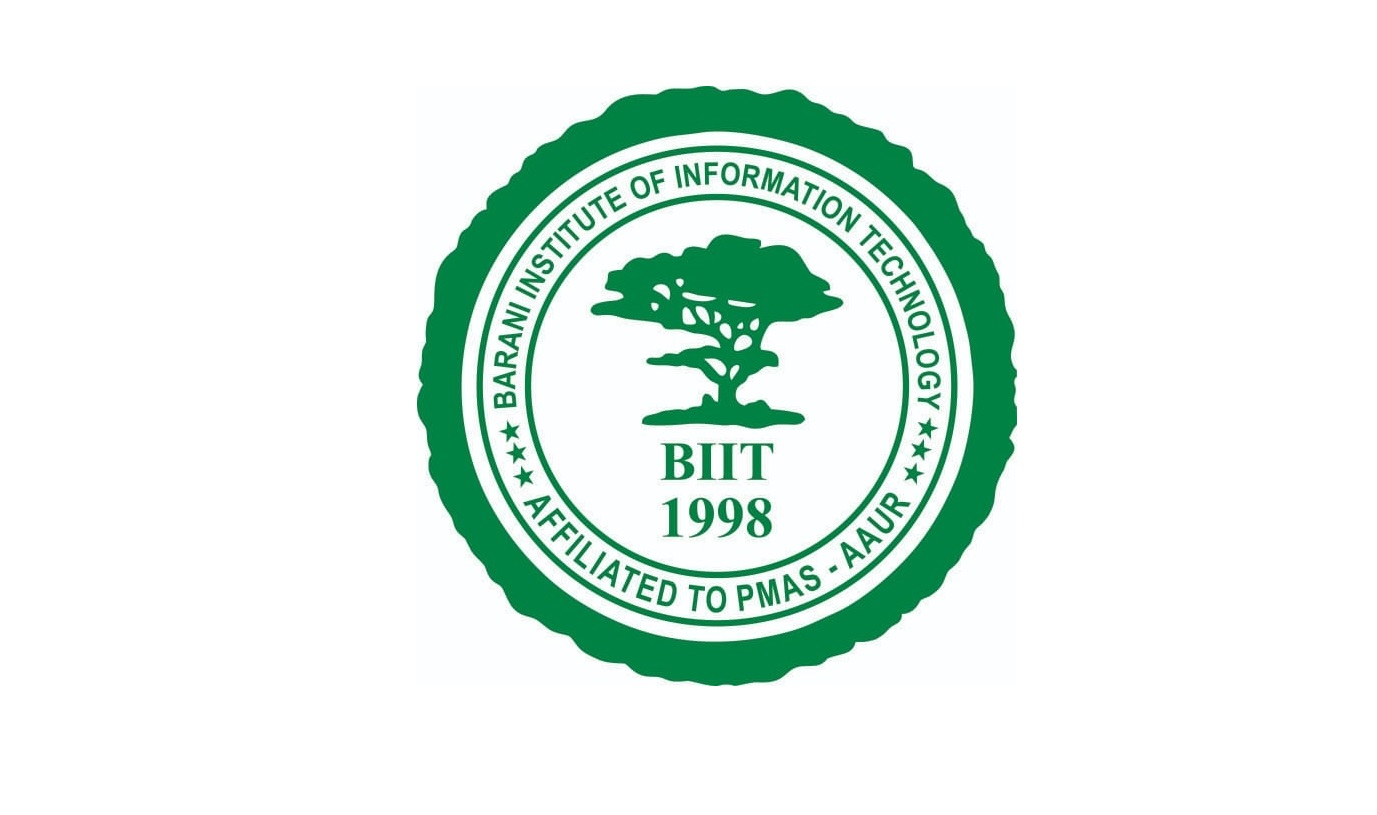Shadowy Entity, Missing Records: Inquiry Sought into Barani Institute’s Operations

RAWALPINDI: A storm of controversy has erupted around the Barani Institute of Information Technology (BIIT) in Rawalpindi, casting a shadow over the validity of its degrees and its affiliation with Arid Agriculture University Rawalpindi (AAUR). An independent investigation has been called for to examine alleged potential irregularities in BIIT’s operations, leaving students and parents in a state of uncertainty.
The core of the issue lies in the murky waters surrounding BIIT’s affiliation with AAUR. While BIIT claims to be a formally affiliated institute, AAUR could only produce an agreement allegedly with a non-registered entity called M/s Resource Organizers and Software Engineers (ROSE) instead of issuing an affiliation letter/notification to BIIT.
Sources within SECP wishing anonymity have confirmed that there is no company having the name “Resource Organizers and Software Engineers” incorporated with the SECP. The SECP’s website further corroborates this information.
Further complicating matters, AAUR claims a “joint venture” with ROSE, a structure explicitly prohibited under university regulations. To add fuel to the fire, there seems to be no record of an affiliation committee evaluation report and minutes of affiliation committee meetings that would typically document the approval process for BIIT’s affiliation with AAUR.
Accreditation woes further muddy the picture. BIIT offers several Bachelor of Science programs, including Artificial Intelligence, Computer Science, Information Technology, and Software Engineering. However, two of these programs are not offered by AAUR, raising serious concerns about the validity of accreditation for these programs at BIIT. Making matters worse, none of BIIT’s programs hold accreditation from the National Computing Education Accreditation Council (NCEAC). In contrast, AAUR only holds accreditation for two programs – Software Engineering and Computer Science. NCEAC has further clarified that it cannot accredit programs that are not even offered by the main university, creating a major roadblock for BIIT’s accreditation claims.
The problems don’t stop there. BIIT allegedly operated unregistered from 1998 to 2017, raising questions about the legality of its operations during that period. Even after obtaining a provincial NOC (No Objection Certificate) in 2017 and renewing in 2022, the document only covers three programs, while BIIT continues to offer four. Adding to the confusion, there’s a significant discrepancy between the authorized enrollment quotas for students issued by AAUR and the government. AAUR allows BIIT to enroll 400 students in Bachelor of Science in Computer Science programs and 100 students in Bachelor of Science in Software Engineering programs per semester.
Sources said that the government, through the Directorate of Public Instruction (Colleges), Punjab, only permits BIIT to enroll 50 students in each of the three programs for which it holds an NOC.
According to experts, student enrollment quotas are typically determined based on an institute’s facilities, including staff, labs, and classrooms. The lack of accreditation for most of BIIT’s programs throws the validity of these enrollment quotas into further doubt.
Alleged financial irregularities are another cause for concern. BIIT collects student fees but deposits them into bank accounts under the name of Resource Organizers and Software Engineers, the alleged unregistered entity mentioned earlier. No agreement exists between AAUR and BIIT to explain this transfer of funds. This lack of transparency raises serious questions about tax payments and other financial matters of the BIIT.
The lack of clarity extends beyond enrollment and finances. Sources informed that BIIT degrees awarded to students only mention Arid Agriculture University and lack any mention of BIIT itself.
This omission raises concerns about the Higher Education Commission’s (HEC) record-keeping practices. The absence of a clear distinction between AAUR and BIIT degrees might lead to inaccurate data at HEC, potentially impacting the legitimacy of these degrees.
Given the weight of these potential irregularities, an immediate and independent investigation is necessary to ensure the quality of education offered by BIIT and to protect the interests of students who have enrolled in its programs.
Depending on the findings of the investigation, action might be required against both AAUR and BIIT to ensure compliance with regulations and to safeguard the future of students who have entrusted these institutions with their education.






